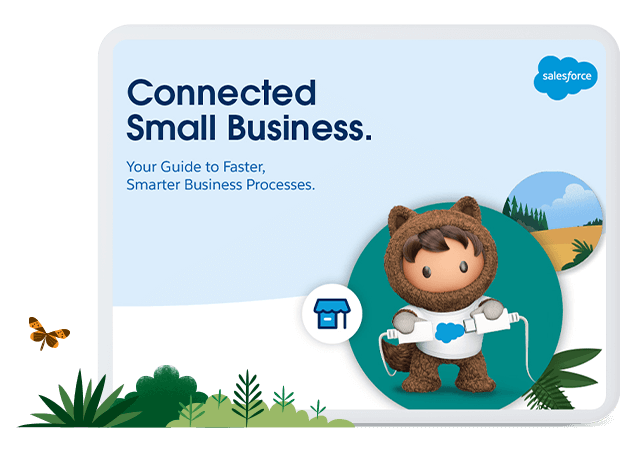Annual accounts are a good starting place, but deeper business reporting is needed
Annual accounts can provide a helpful overview of a business’s past year, but in order to make smarter decisions and drive improvements, you’ll want to look at information on a more granular level. Business reporting offers bespoke information, so that you can get a more detailed picture of critical areas and how different key roles are performing.
Annual accounts are also created well after the year has ended, so the information they provide is dated even at the time of delivery. To make more timely decisions, you’ll want to look at recent trends and shifts, which is where more detailed business reporting is helpful.
Create the right report for the right team at the right moment
In order to be actionable and relevant, reports should be centred around a business’s unique needs. For instance, you can evaluate your business’s KPIs (Key Performance Indicators) to see where you’re exceeding expectations and where more improvements are needed. You can then look for trends in those KPIs, compare historical performance against current performance, and look for outlying data – and what might be causing it.
Timeliness is crucial. Reports should be created frequently so that you’re able to respond to the information and affect positive change quickly. Good business reporting is essential for delivering impactful insights and driving smarter, faster decision making.
The importance of accurate business reporting goes beyond the organisation
Business reports are important for analysing sales metrics, improving inventory management, optimising marketing campaigns and many other functions. Business reporting isn’t just a tool for critical analysis, though, it can be mandatory.
For example, financial reports are a legal necessity and mandated by various regulatory bodies, depending on what country an organisation is based in. Regular financial reporting is also often required by stakeholders, senior management and board members.
Common types of business reports
When creating reports, you’ll want to consider what types of reports will best suit your business’s needs. Some of the most popular types of business reports include:
Informational report. This is simply a report that provides objective information and background on a subject. Since it’s not subjective, it’s a good starting point for offering broad context on a situation. Some informational reports are also explanatory reports. These highlight research done on a particular subject, as well as the methodology of the research.
Financial report. All businesses will prepare financial reports that show overall financial health and how an organisation is progressing towards their revenue and profit goals. Financial reports can drive internal decision-making, or be presented to stakeholders and regulatory bodies. Make sure to cater your financial reports to the right readership.
Research report. Research reports are critical for businesses that are looking to capitalise on new opportunities. Research reports are compiled from statistics, analytics and expert guidance. They can shed light on how the market might respond to new products or services, or how a business can best adapt to changing conditions. You’ll want to create a research report before moving into a new geographical area, for example.
Market analysis. When you’re looking at how your business can best allocate its resources, you’ll want to create a market analysis report first. For instance, if your marketing intelligence software predicts that a market will see tremendous growth, you’ll want to direct more of your marketing budget to that area.
Trends analysis. The ability to create up-to-the-minute reports based on real-time data can enable businesses to capitalise on market trends. A trends analysis report will show you where the market is heading, so that you can make a bigger impact with your marketing. Trends analysis is also important for long-term growth, as you’ll be able to see wider shifts in demographics and consumer preferences.
5 steps to better business reporting
OK, you know what kind of reports you want to create, and for what functions. Now it’s time to figure out how to find the right insights, and how to best deliver them to your audience. Here are some steps you can take to create reports that can help analyse business performance, identify areas for improvement and evaluate new opportunities.
Use business reporting software. Business reporting software can help you retrieve data, organise it and present it in an impactful way. With business reporting software, you can create simple graphs and dashboards to relay complex information. Software can also make business reporting less time consuming, while helping to create a more data-driven culture.
Identify essential data. Businesses deal with massive amounts of data. In order to be turned into actionable insights, it needs to be organised and directed towards a goal. Otherwise, non-essential data can threaten to obscure and devour valuable insights. Every organisation will have its own metrics that matter most, so ensure that you’re capturing the right data to fuel business intelligence. Marketing has different needs than sales. And sales from service. Business reporting needs to be tailored to the right KPIs.
Create a schedule. As mentioned above, timing is everything. If you’re generating reports when it’s too late for them to be actionable, then you’re not using your data to its full potential. But you’ll also want to set out a reporting schedule that doesn’t demand that you always be reactive. Instead, allow time for any changes to register an impact. Different types of reports and different departments may require different schedules. Scheduling is one of the areas where automation can be helpful.
Automate data collection. Once you have identified the essential data you need, you’ll want to extract it. If you have multiple data collection platforms, this can be time-consuming. A centralised data platform will make it much easier to get the insights you need. By using a CRM solution, you can automate data processes and schedule reports to be run and delivered to various teams at various times.
Present your data in an impactful way. Data can tell you a lot about your business. How you decide to present that story is up to you. Some people are visual learners. For these workers, graphs and dashboards with real-time information might be the most helpful. Other people respond to narrative. To reach these team members, you may want to distil your data into an explanatory report.
Ready to deliver insights that matter?
Once you have a blueprint for business reporting, you can move on to creating high-quality reports. Focus on making sure that your reports are visually appealing, include the most relevant and actionable data points. Check that they tell an accurate story of your business, and present the information needed to make informed decisions and drive business success.
Improved productivity. Better sales leads. Superior service. Optimised workflows. Reduced inefficiencies. Increased ROI. These all start with more intelligent business reporting.
To see more about how to help your business reach its peak potential, grab our guide, 5 Productivity Tips Every Small Business Needs to Know. And to see how digitisation can put your SME on a path towards a brighter tomorrow, download our eBook, The Connected Small Business: Your Guide to Smarter, Faster Business Processes.









